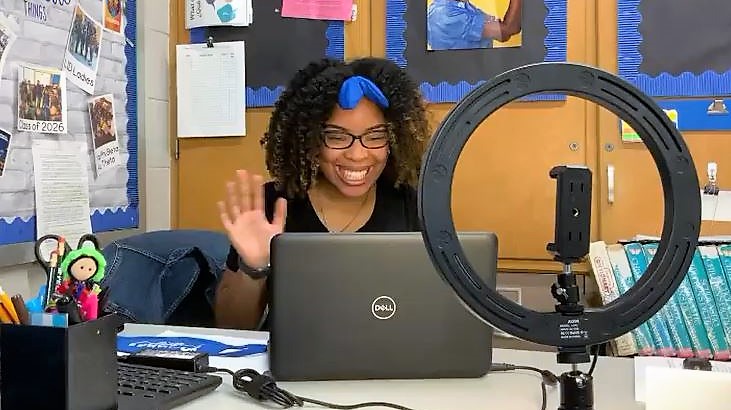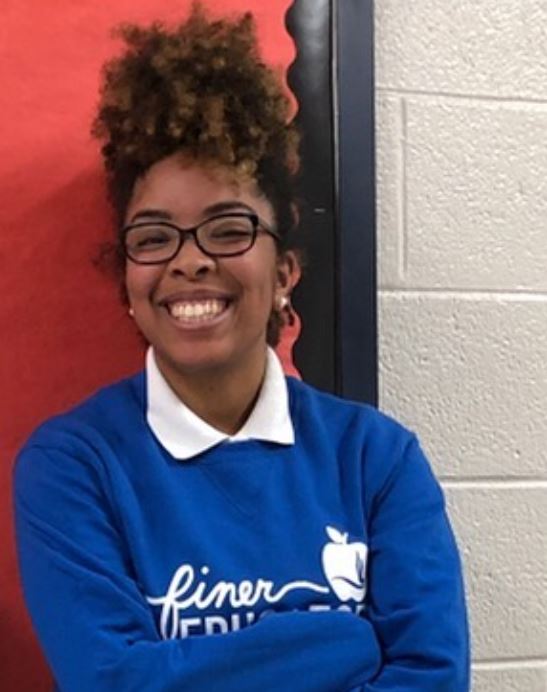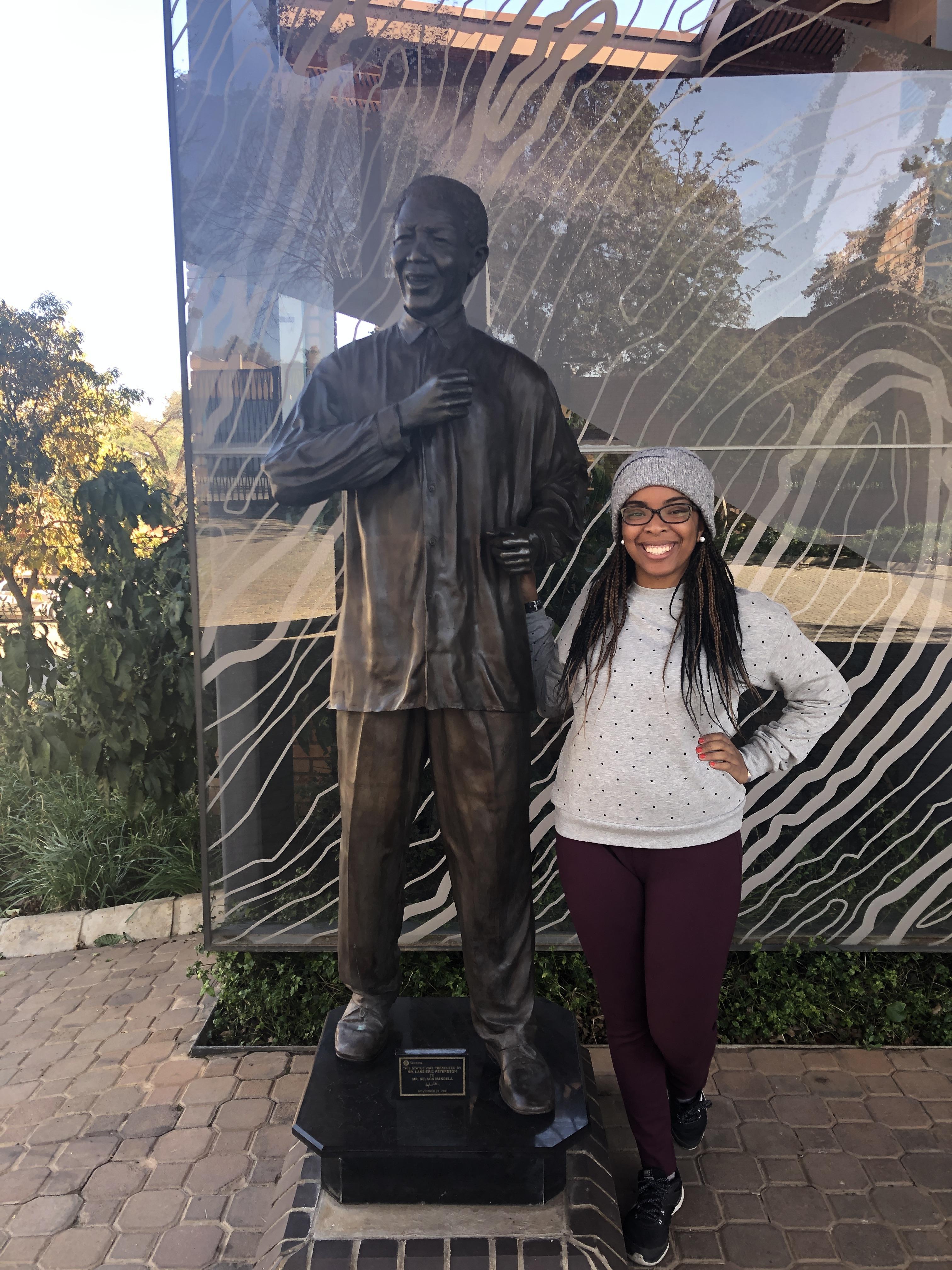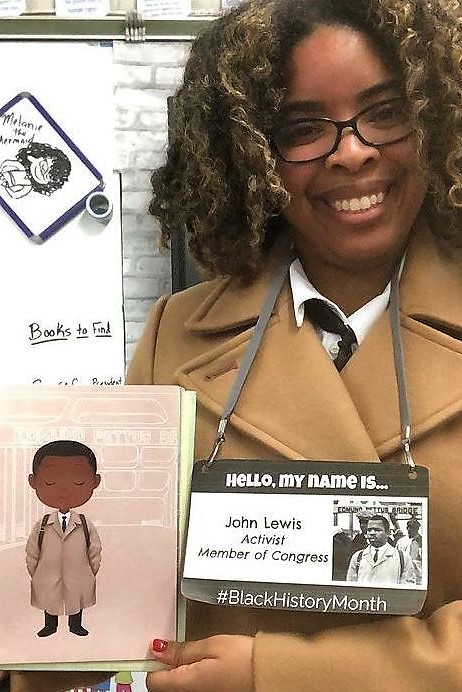Fellow Voices: What is Teacher Leadership? with Tracey-Ann Lafayette

 When thinking about teacher leaders, who comes to mind? Union reps? Data team leaders? Committee chairs? Leadership is about more than labels. There are countless individuals in classrooms around the world who do not fit into any of these categories, but are creating impactful change in their school communities. What does it really mean to be a teacher leader? A teacher leader is someone who seeks feedback, is a lifelong learner, understands the importance of relationships, and is willing to take risks.
When thinking about teacher leaders, who comes to mind? Union reps? Data team leaders? Committee chairs? Leadership is about more than labels. There are countless individuals in classrooms around the world who do not fit into any of these categories, but are creating impactful change in their school communities. What does it really mean to be a teacher leader? A teacher leader is someone who seeks feedback, is a lifelong learner, understands the importance of relationships, and is willing to take risks.
Teacher Leaders Seek Feedback
Teacher leaders are reflective educators who recognize feedback as essential to their growth and development. Instead of waiting, teacher leaders actively seek feedback related to lessons, situations that are occurring, and new ideas. When I am looking for feedback, I rely on three different sources: social media, my colleagues, and my administrators.
- Social media: Sometimes when looking for feedback, I am interested in the ideas and experiences of people outside of my school building. As a teacher who has spent my whole teaching career in the same building, I appreciate hearing ideas from others. When this happens, I sharing an idea or something I have tried on social media and ask questions so that I will receive feedback that will help push my thinking. Using social media can be a powerful tool to gather feedback from educators all over the world!
- Colleagues: Sharing ideas with colleagues at my school is very beneficial because unlike feedback from social media, my colleagues understand my school context and take into consideration as they are giving feedback. They are people that I can talk to continuously throughout my thought process due to their proximity.
- Administration: Seeking feedback from my administrators has helped me because in addition to understanding my school context, they also have seen practices in other classrooms throughout the building, have their own teaching experiences, and have a big picture view that can help me further reflect on my plans and ideas.
Teacher leaders… are lifelong learners
Teacher leaders know that learning is not just for students in classrooms. Teachers are learners too! Being a lifelong learner is a key characteristic of teacher leadership because it means recognizing there is always more to learn, even on topics you are very familiar. Learning for teacher leaders extends beyond the professional learning opportunities that are provided through school and districts. Being a lifelong learner means seeking opportunities to learn more about topics that you know a lot about and seeking out opportunities to learn more about topics that you don’t know about. This includes attending conferences, participating in webinars, joining education communities on social media, or reading a book.
Educators like LaNesha Tabb @Apron_Education, and FFT Fellow Liz Kleinrock @TeachAndTransform, exemplify true teacher leadership. Learning from their work over the years has taught me so much. I also enjoy attending the National Association for Multicultural Education conference, the Ron Clark Academy Educator Training, and the Get Your Teach On National conference. Beyond the opportunity to learn from amazing presenters, I really appreciate getting to network with educators from around the world at these conferences.
Teacher leaders…understand that relationships matter
 We hear the phrase “relationships matter” when it comes to teachers working with students and their families but teacher leaders also value their relationships with colleagues. This doesn’t mean being best friends with everyone in their building, but it does mean recognizing the power of collaboration. There is a song by the artists Fabulous and Ne-Yo that says “I’m a movement by myself, but I’m a force when we’re together.” Teacher leadership means understanding that although an individual teacher leader can do amazing things, when they take the opportunity to bounce ideas off of others, collaborate with others, and get feedback from others even greater change is possible.
We hear the phrase “relationships matter” when it comes to teachers working with students and their families but teacher leaders also value their relationships with colleagues. This doesn’t mean being best friends with everyone in their building, but it does mean recognizing the power of collaboration. There is a song by the artists Fabulous and Ne-Yo that says “I’m a movement by myself, but I’m a force when we’re together.” Teacher leadership means understanding that although an individual teacher leader can do amazing things, when they take the opportunity to bounce ideas off of others, collaborate with others, and get feedback from others even greater change is possible.
My experiences with Fund for Teachers is a great example. One of my colleagues and I received a Fund for Teachers fellowship to travel to South Africa for over two weeks. Upon return, we created a social justice library for our school and engaged our colleagues in conversations about incorporating social justice and activism topics into their lessons.
Teacher leaders…. are innovative and risk takers
An important characteristic of teacher leaders is the willingness to try new things. Teacher leaders are not only innovative and creative but also risk takers. Taking risks can be an intimidating process but a teacher leader knows that things will not be perfect and that is okay. Teacher leaders are willing to make mistakes and most importantly, to learn from those mistakes.
Being creative and trying new things is one of my favorite things about teacher leadership because it turns thoughts and what ifs? into action. [For Women’s History Month and Black History Month, Tracey-Anne dresses as individuals she wants her students to remember and emulate in some way.]
Fostering Growth and Development of Teacher Leaders
Administrators can support teachers in ways that will help them continue to grow as leaders. What does it look like to support and foster teacher leadership? Administrators can start by listening. Innovative teachers are likely to stop and say “Do you have a moment for me to run an idea past you?” They are going to come up with new ideas and creative solutions for problems that can be a great asset to the school community. Taking the time to listen to these ideas shows that the voices of teacher leaders are valued and develops an atmosphere where leaders can feel more comfortable dreaming big and voicing their ideas!
Administrators can also encourage teachers to try new things. Teacher leaders are risk takers and lifelong learners but feeling that they are supported in their risk taking can make a huge difference, especially for those new to leadership. Encouraging teacher leaders to attend a workshop, suggesting a book for them to read, or even encouraging them to implement something new in their classroom or school community shows teacher leaders once again that they are valued as leaders.
Finally, to foster teacher leadership skills, administrators should provide teacher leaders with a level of challenge. When a teacher comes to their administrator with an idea, instead of automatically saying yes, the administrator should ask questions that challenge them and push them to think more deeply about their idea. This type of feedback is exactly what teacher leaders need to continue growing.
To my fellow teacher leaders…
Thank you for your creativity, innovation, and inspiration. Your passion and efforts continue to make a difference for students. As you continue to embark on this journey, please take care of yourself along the way. Remember that it is okay to delegate, it is okay to ask for help, and it is even okay to say no! To be the best that we can be, we need to reset and recharge regularly. As you speak up for your students and your school community, remember to speak up for yourself as well.
[minti_divider style=”3″ icon=”” margin=”20px 0px 20px 0px”]
Tracey-Ann Lafayette is a third grade teacher in East Hartford, CT, who is passionate about teaching her students about speaking up for injustices in their community, the nation, and the world. She is a co-founder of two organizations (collegiate and professional) that focus on supporting pre-service teachers and educators of color across the state. Follow her on Instagram and read more about her fellowship here.
 Back to Blogs
Back to Blogs

